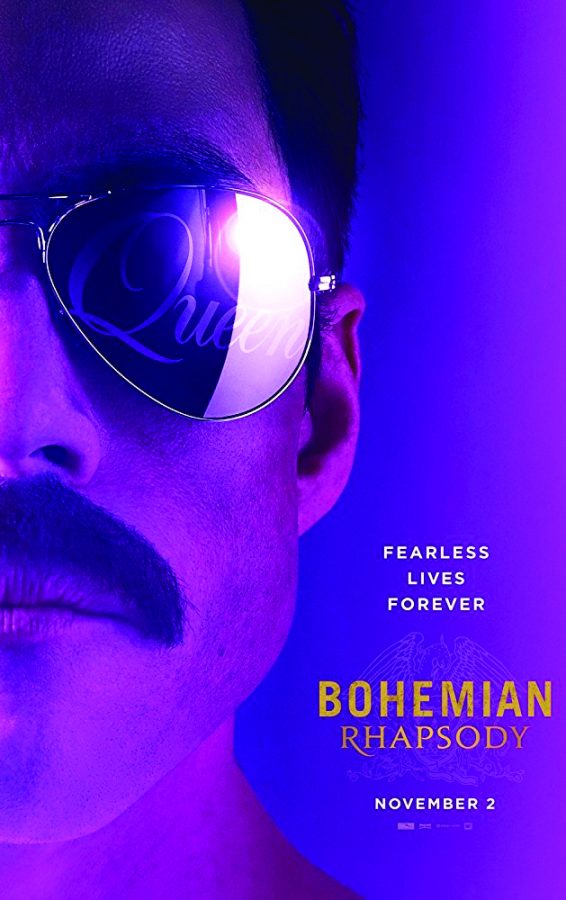Malek shines, history does not in Queen biopic “Bohemian Rhapsody”
“Bohemian Rhapsody,” with its strengths and weaknesses, basically summarizes the problems and debates surrounding the biopic drama today.
The film is the story of English rock band Queen, but more so it is the dramatization of that group’s key member and one of the most iconic figures of rock music: Freddie Mercury (played by Rami Malek).
The film begins by introducing us to a young Mercury and his family as he navigates the local London rock scene in search for something greater. He spends most nights going out to shows and admiring the performers on stage, a habit his father doesn’t approve of much. Mercury seems to disregard, if not disdain, his Persian, Zoroastrian heritage and family life, and, to his father, his lack of time spent with family and instead spent in music clubs is only greater proof of that. “Good thoughts, good words and good deeds,” he constantly reminds Mercury of as a mantra of life, one Mercury seems to not pay much attention to.
This tension pervades Mercury’s arc throughout the film. He is constantly trying to move on from himself towards something different, whether it has to do with his sexuality, his heritage or even Queen’s music. He is constantly trying to reinvent himself or portray himself as something he is not.
Malek’s full investment in the character is perhaps the most effective means by which this tension is conveyed and it serves overall as the film’s strongest element. Malek fits almost effortlessly into this role without ever seeming to try too hard to look, stand or sound like Freddie Mercury.
This tends to be one of the many things plaguing the discussion of the biopic. How faithfully must the character presented be to the real person, and what does it even mean to be faithful to a real person in a cinematic depiction of them? Is it having their movements, body language and speech patterns replicated down to a T, or is it about accurately portraying that person’s internal struggles? Malek, in this film, wonderfully achieves both.
However, where some scenes attempt emotional poignancy in representing Mercury’s internal turmoil, there is a tendency for these to fall flat by adhering to the didactic clichés of the music biopic. Key life events, some more fabricated or exaggerated than others, are associated directly with the composition of hit songs the audience is surely familiar with.
By straying away from the truth of events (for example, the film depicts a rather heated encounter between the band and record producer Ray Foster, who did not actually exist, over whether to make “Bohemian Rhapsody” a single), the film also seems to emphasize the idea that a biopic is more about a certain conception of accurately representing a certain person rather than true events.
None of this takes away from the film’s crescendo, however, which is a rather faithful adaptation of Queen’s performance at Live Aid, which sets up the beginning of the film. Boldly, the filmmakers allow the audience to experience the band’s masterful entertainment for themselves, letting the performance basically play out in full in one of the film’s few emotionally poignant marks.
It is a colorful ending to a film, which, though often uneven, highlights its strengths.
“Bohemian Rhapsody” was released November 2, 2018, and is screening at theaters nationwide.











